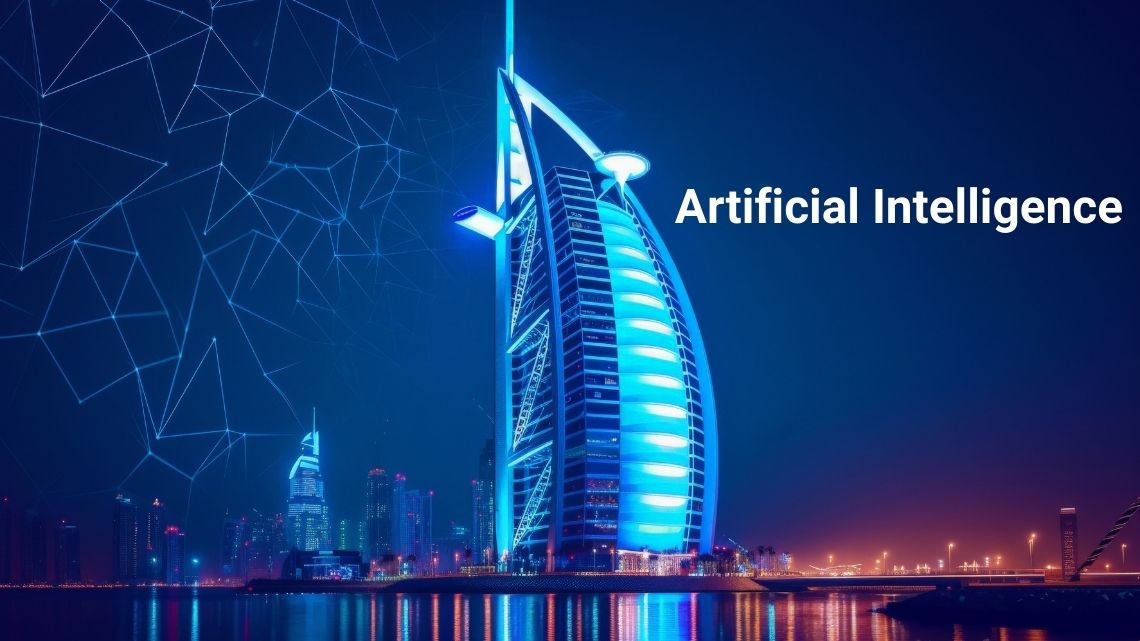
Before the first call to prayer echoes across Muscat’s tranquil skyline, a command center in a shimmering glass tower flickers to life. Huge, wall-sized screens stream data from solar farms, port terminals, and oil rigs into a real-time AI engine that outputs, adapts logistics, and naturally wheels energy flows.
Now, in one corner, a young engineer from Sohar, a city in Oman, gently adjusts a fault-detection model, where one tweak catches particulars others miss. This isn’t a test bed, though; it’s the Gulf’s AI economy in active motion. From utilities to smart cities today, it’s machine learning (ML) that sustains everyday decisions, quietly reshaping the region’s industrial edge.
AI Adoption Accelerates: Numbers Behind the Surge
According to IMARC Group, the GCC generative AI market reached $316.1 million in 2024 last year, and is expected to increase to $4.04 billion by 2033, growing at an impressive 32.7% CAGR. According to Statista, the broader GCC AI market will be worth around $4.2 billion at the end of 2025, expanding at 26.21% annually to reach a $16.98 billion by 2031. These numbers represent real traction and aren’t just an experiment.
Corporate Ambition Meets National Vision
Reuters-backed Boston Consulting Group (BCG) data shows that one in four companies in the GCC plans to invest more than $25 million in AI in 2025, indicating a strategic adoption at the corporate level. In the KSA, the Saudi Gazette reports that Vision 2030 aims to channel around $135.2 billion of AI-driven value into GDP by 2030, in parallel to 12.4% of the national economy.
Meanwhile, McKinsey believes that generative AI alone could add a noticeable $21 billion more to the current $35 billion annually to the GDP of Gulf economies. This growth would build on the $150 billion in value that core AI applications have already unlocked, including predictive maintenance in oil and gas, AI-powered port logistics, and smart grid optimization. Together, these intelligent systems quietly shape the core of the GCC’s industrial transformation, positioning the region for a period of uninterrupted, AI-driven economic sustainability.
Generative AI Creating the Region’s Momentum
McKinsey’s findings go much deeper: 75% of GCC businesses are already using generative AI in at least one function, which is currently much further ahead than their global peers. Additionally, around 57% of GCC firms commit over 5% of their digital budgets to AI, compared to just the 33% by the rest of the world. The Gulf isn’t just riding this new AI wave. Rather, it’s very much steering it.
Building the AI Infrastructure and Ecosystem
A BCG report categorizes the Gulf states as “AI competitors” with Saudi Arabia and the UAE leading the stage. Currently, the UAE boasts 35 data centers that bolster its AI infrastructure. Furthermore, across Saudi businesses, around 72% have already deployed AI strategies, while having strong support from national cloud expansion and high-performance computing (HPC) investments. Still, a common problem factor remains: capability delays ambition.
How AI Drives Value in Real-World Gains
We all know by now that AI’s impact in our corporate and progressive world resonates beyond any projections made. Reuters reports that Abu Dhabi National Oil Company (ADNOC) generated over $500 million in just AI-driven value in 2023 alone, while slashing over 1 million tonnes of CO2 emissions, a powerful case where smart technology meets sustainability. Meanwhile, the Global Capability Centers in the Gulf escalated innovation. And over 90% of the top-performing centers in turn created AI centers of excellence within the last 18 months.
Innovating Responsibly
A regional study on AI regulation points out that the Gulf favors a “soft regulation” model, allowing rapid innovation but also risking ethical gray zones and potential misuse. Parallely, Saudi Arabia has introduced the Global AI Hub Law, a new approach enabling foreign operators to run local data hubs under tailored legal frameworks. This move reaches a balance between openness to cutting-edge innovation and maintaining sovereign control.
From Visions to Reality
Half a year later, in the buzzing halls of a Dubai tech conference, the engineer from Muscat (let’s call her Rihana) takes the stage and presents her AI-driven energy optimization model. The many investors alongside top energy executives watch on as live dashboards track demand surges across GCC capitals. Soon, the conversation pivots toward scaling the system across the Gulf. And in that moment, Rihana’s platform becomes a defining symbol of the region’s AI awakening: a locally-built innovation poised for global impact.
Connect with Us:
LinkedIn: https://www.linkedin.com/company/entrepreneur-gulf/
Twitter X: https://x.com/entpre_gulf
Instagram: https://www.instagram.com/entrepreneurgulf/
